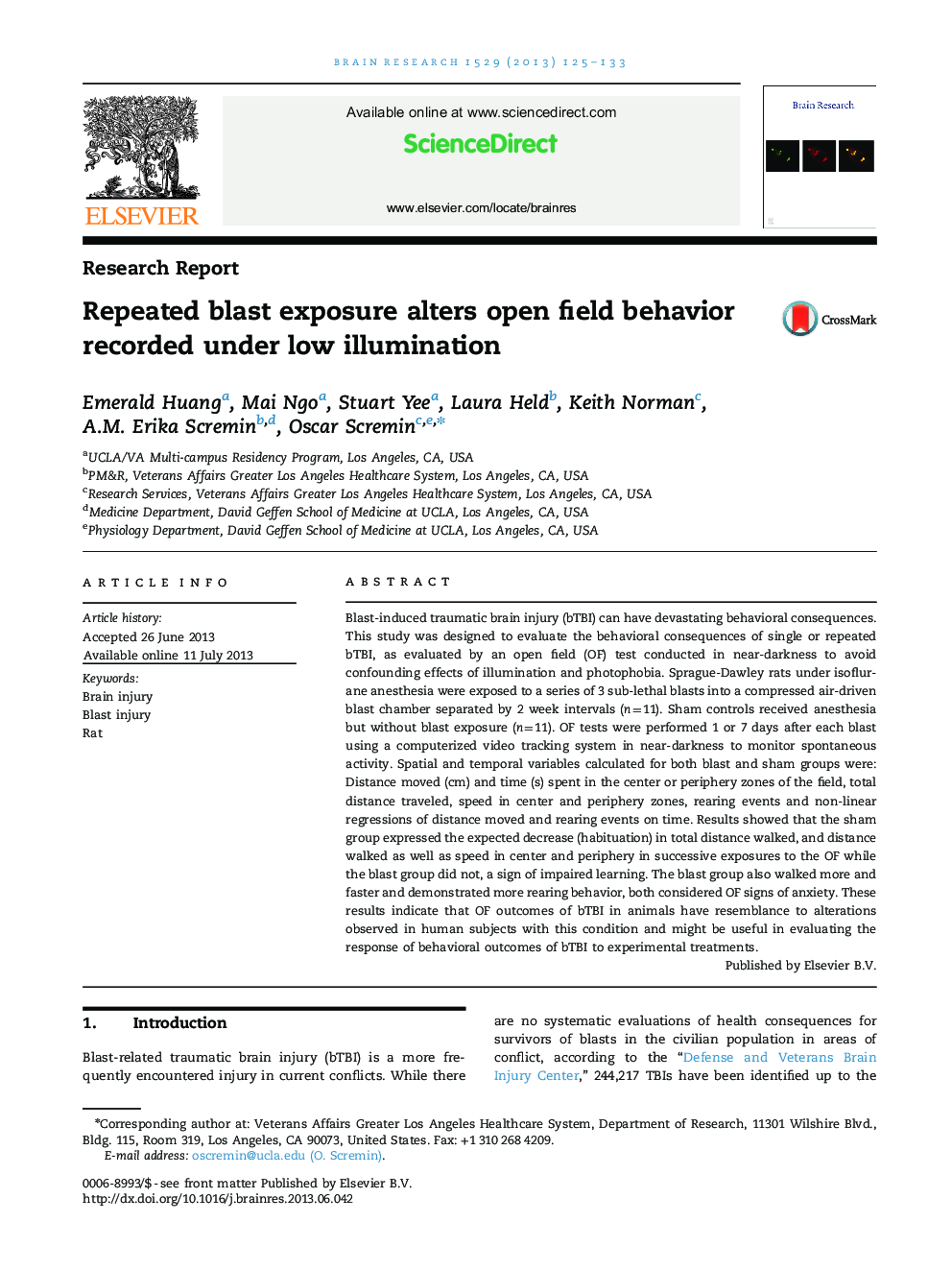| Article ID | Journal | Published Year | Pages | File Type |
|---|---|---|---|---|
| 6263774 | Brain Research | 2013 | 9 Pages |
•Mild blast-induced brain injury can have severe behavioral consequences.•Rats were exposed to repeated non-lethal blasts inside an experimental chamber.•Open field activity tests revealed progressive departure from normal behavior.•These tests could provide high throughput screening of treatments for blast behavioral sequelae.
Blast-induced traumatic brain injury (bTBI) can have devastating behavioral consequences. This study was designed to evaluate the behavioral consequences of single or repeated bTBI, as evaluated by an open field (OF) test conducted in near-darkness to avoid confounding effects of illumination and photophobia. Sprague-Dawley rats under isoflurane anesthesia were exposed to a series of 3 sub-lethal blasts into a compressed air-driven blast chamber separated by 2 week intervals (n=11). Sham controls received anesthesia but without blast exposure (n=11). OF tests were performed 1 or 7 days after each blast using a computerized video tracking system in near-darkness to monitor spontaneous activity. Spatial and temporal variables calculated for both blast and sham groups were: Distance moved (cm) and time (s) spent in the center or periphery zones of the field, total distance traveled, speed in center and periphery zones, rearing events and non-linear regressions of distance moved and rearing events on time. Results showed that the sham group expressed the expected decrease (habituation) in total distance walked, and distance walked as well as speed in center and periphery in successive exposures to the OF while the blast group did not, a sign of impaired learning. The blast group also walked more and faster and demonstrated more rearing behavior, both considered OF signs of anxiety. These results indicate that OF outcomes of bTBI in animals have resemblance to alterations observed in human subjects with this condition and might be useful in evaluating the response of behavioral outcomes of bTBI to experimental treatments.
